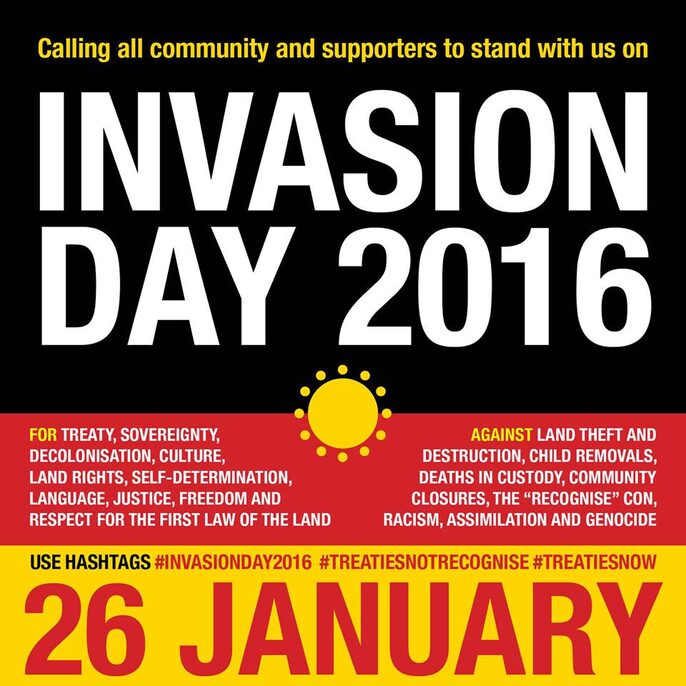
Most Australians celebrate Australia Day as the day Australia was founded.
In contrast, Aboriginal people mourn their history and call it ‘Invasion Day’. January 26, 1788 was the date on which Captain Arthur Phillip took formal possession of the colony of New South Wales and raised the British flag for the first time in Sydney Cove. Since 1994 all states and territories celebrate Australia Day together on this day each year. On this day ceremonies welcome new citizens or honour people who did a great service.
Australia is the only country that relies on the arrival of Europeans on its shores as being so significant it should herald the official national day.
To many Aboriginal Australians there is little to celebrate and it is a commemoration of a deep loss. Loss of their sovereign rights to their land, loss of family, loss of the right to practice their culture.
“Australia Day is 26 January, a date whose only significance is to mark the coming to Australia of the white people in 1788. It’s not a date that is particularly pleasing for Aborigines,” says Aboriginal activist Michael Mansell [8]. “The British were armed to the teeth and from the moment they stepped foot on our country, the slaughter and dispossession of Aborigines began.”
Aboriginal people call it ‘Invasion Day’, ‘Day of Mourning’, ‘Survival Day’ or, since 2006, ‘Aboriginal Sovereignty Day’. The latter name reflects that all Aboriginal nations are sovereign and should be united in the continuous fight for their rights. On this day, pause to reflect what this day in 1788 signified for the indigenous people of Australia, and what can be done to restore the dignity of Austraila's Aboriginal inhabitants.










